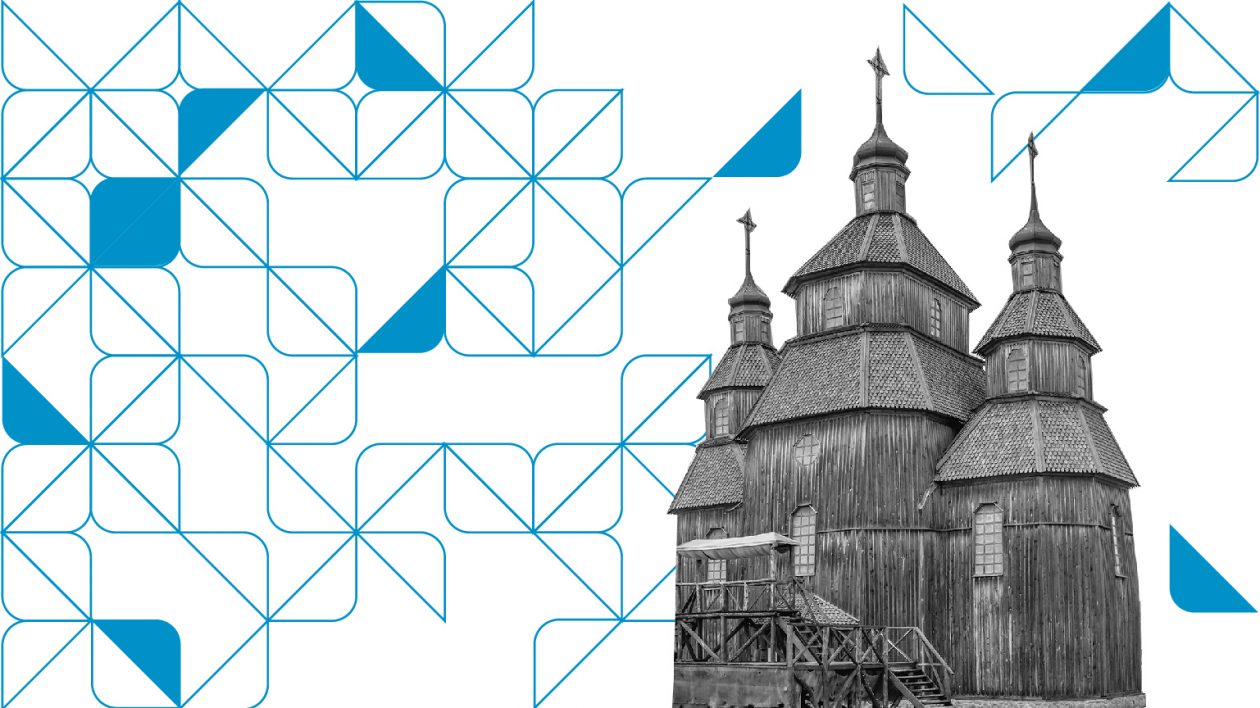Zaporizhzhia residents tend to rely entirely on their own efforts rather than the state and distrust the authorities. They are well aware of public initiatives and are interested in participating in them, suggest the results of the latest wave of the Civic Engagement Poll in the Zaporizhzhia oblast, conducted by USAID/ENGAGE in winter 2021.
The Civic Engagement Poll is a survey conducted by the USAID/ENGAGE activity to gauge citizen awareness of and engagement in civil society activities, participation in, and perception of reform processes in Ukraine. In 2019 for the first time, USAID/ENGAGE extended it to the four target oblasts – Kharkiv, Zaporizhzhia, Sumy, and Kherson. This recent wave of the poll was held in winter 2021 and is the second time when USAID/ENGAGE draws up regional data. In this wave, in addition to the questions regarding awareness of and engagement in civic activities, we asked Zaporizhzhia residents about their values and beliefs. Comparing these data with national results allows to better understand peculiarities of the regions and whether its citizens perceive civil society activities, reform processes and values differently from the rest of Ukrainians.
Residents of Zaporizhzhia oblast are well aware of the opportunities for public participation, although they have slightly lower engagement rates compared to the overall results of our national survey. The vast majority of respondents (72%) said they knew about participation in a peaceful assembly for a specific cause, creation or participation in the work of a housing, street or block committee (63%), or the possibility to report on infrastructure issues to local administration personally or by phone (61%). At the country level, these shares are 75%, 71%, and 69%, respectively.
At the same time, the actual participation leaves a great deal to be desired. Only 3% of respondents reported that they regularly participate in meetings and other public events in their communities, with 33% who do it rarely while nationwide 7% take regular participation and 26% join rarely. Among the reasons that prevent residents of Zaporizhzhia from joining public initiatives, 34% indicated lack of interest, and another 28% referred to the lack of time.
Similar are the results of the engagement in the activities of civil society organizations. Only 2% of respondents claimed to have taken an active part, while 16% rarely joined the work of CSOs (nationally, 4% and 13%, respectively). As many as 47% did not have much interest, and 30% time.
And yet, Zaporizhzhia residents are not indifferent to the life of their community. 17% were engaged in the creation or work of a housing, street, or block committee, with another 17% who reported personally or by phone on the infrastructure issues to the local administration. 11% initiated or signed petitions to local or national government. 7% joined peaceful assemblies for a specific cause.
The survey revealed that Zaporizhzhia residents are ready to join forces and take care of themselves and their community without relying on local authorities. Respondents indicated that they can independently revitalize a territory of their house (42%), a local park (21%) or organize leisure activities (21%).
In Zaporizhzhia, respondents identified similar issues for the state, the region and their families. For example, unemployment (52%), corruption (45%) and poverty (45%) are considered as the most important issues for Ukraine. On a regional level, the indicators are somewhat shifting – unemployment remains the top issue for 63%, next come poverty (36%) and corruption (29%). Speaking of their families, poverty is a top issue for 47% of respondents, followed by unemployment (44%) and access to health care (29%.)
In general, the residents of the region are unsatisfied with the pace of reforms but do hope that they will see the outcomes soon. Almost two-thirds of Zaporizhzhya residents (60%) pointed out that they had not feel any consequences of the reforms. A quarter (25%) have already felt both positive and negative results, while 10% exclusively negative. Only 1% reported having felt positive consequences of reforms. One-third of Zaporizhzhia residents (31%) expect to feel the effects of reforms in 2-3 years, 15% in 4-5 years, while 14% believe that this will happen within a year.
Speaking about the first signs of the irreversibility of reforms, 50% of respondents named positive rates of economic growth versus 49% nationally. Next, come the increase in the level of income of their families (48%) and the opportunity to receive quality services from the state (34%).
Zaporizhzhia demonstrates a high level of personal independence and relying on personal efforts rather than the state. 63% of the respondents indicated that their well-being depends entirely on their effort. 70% think that their health depends entirely on them, while another 65% are convinced that only due to own efforts one can get education and 63% their employment. However, 50% of the respondents agree that the state should guarantee the well-being of each citizen, employment, and social security.
At the same time, Zaporizhzhia people are displeased with government. 90% of respondents indicated that most people in power try to profit at their expense, 90% believe that their opinion does not matter to the authorities and that they do not care about them at all (89%), while another 89% believe that they have no influence on developments in the country.
Although 45% of Zaporizhzhia residents agree that freedom cannot be sacrificed for the sake of a greater security and well-being, almost half of the respondents (47%) believe that there are situations in life when rules and laws can be breached. The respondents also believe that one cannot trust other people (43%) and that success depends on luck and connections rather than hard work (47%). Still, they aspire for competition that stimulates people work more and introduce new ideas (56%).
In general, residents of the region believe that first and foremost a good citizen is one who stays at home when sick – 92% of respondents share this opinion. Being fully aware of rights and the ability to protect them (90%), participation in electoral voting (89%), observing rules and abiding laws are also ascribed to a good citizen.
_______________
This survey summary was prepared by Pact as part of the USAID/ENGAGE activity, which is funded by the United States Agency for International Development (USAID). The contents of this survey summary are the sole responsibility of Pact and do not necessarily reflect the views of USAID or the United States Government.
About the CEP
The Civic Engagement Poll is conducted under the framework of the Enhance Non-Governmental Actors and Grassroots Engagement activity (USAID/ENGAGE), implemented by Pact. This report summarizes key takeaways from the poll, drawing from survey data collected in the winter of 2021.
The survey gauges citizen awareness of and engagement in civil society activities, and citizens’ participation in and perception of reform processes in Ukraine. During the most recent survey, respondents were also asked questions that measure their values, convictions, and attitudes to life.
The data collection for the USAID/ENGAGE Civic Engagement Poll was conducted by the research agency Info Sapiens, during December of 2020 and January of 2021. Field interviews were conducted with Ukrainian residents aged 18 years and older, face-to-face, in the respondents’ homes. The survey sampled 304 respondents and was designed in accordance with the distribution of the adult population of the Zaporizhzhia oblast by age, sex, and settlement type according to the data of the State Statistics Service of Ukraine as of January 1, 2019. The margin of error of the sample is 5.6% (excluding the design effect).
Find more results from the Civic Engagement Poll:
Summer 2020 Winter 2020 Summer 2019 Winter 2019 Summer 2018 Winter 2018 Autumn 2017
You can download survey data and charts here.


